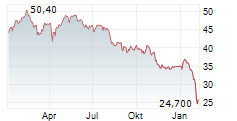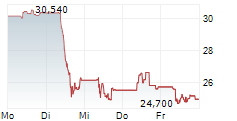The Researcher of the Future report highlights increased adoption of AI alongside concerns, regional variations and new mobility trends
LONDON, Nov. 4, 2025 /PRNewswire/ -- Elsevier today shared the results of its global Researcher of the Future survey, offering fresh insights into how researchers view the rapidly evolving research landscape. The survey is part of Elsevier's continued focus on understanding the drivers of confidence in research and challenges and opportunities for the global research and innovation community. The latest insights show how advances in artificial intelligence (AI), evolving research practices, and shifting policy and funding dynamics are transforming research more profoundly than ever before.

Drawing on insights from more than 3,200 academic and corporate researchers across 113 countries, the report highlights widening regional differences in researcher attitudes, evolving views on mobility, and a shift in how researchers see their own role in a changing world.
Judy Verses, President, Academic & Government Markets at Elsevier: "This study offers a clear picture of researchers' eagerness to innovate and commitment to upholding trust and ethical standards despite the increasing pressures they face. Researchers see AI as a powerful tool to transform how they work and boost impact, but they need solutions they can trust that prioritize research integrity, accuracy and accountability. The scientific community recognizes that these trust markers are essential for advancing human progress with confidence."
Researchers face greater pressure but are committed to upholding integrity
Researchers face increasing pressure from a fast-growing volume of information, administrative and teaching demands, uncertainty over funding and pressure to publish. Together, these factors are eroding the time researchers can dedicate to conducting research and potentially impeding their career progression. Despite the pressures, researchers remain uncompromising in their commitment to quality and maintaining research integrity.
- Only 45% agree they have sufficient time for research
- Just 33% expect funding in their field to increase in the next two to three years, with optimism lowest in North America and Europe
- 68% say the pressure to publish their research is greater than two to three years ago
- 74% say peer-reviewed research is trustworthy and view peer-review as important to research integrity, building trust and broadening impact.
Researchers rapidly adopt AI but need support
Researchers see AI as transformative for their work and adoption is accelerating rapidly:
- 58% now use AI tools in their work, compared with 37% in 2024
- However, only 32% of researchers globally believe there is good AI governance at their institution
- Similarly, just 27% believe they have adequate training in using AI.
Regional variations in researchers' confidence in AI
Researchers' confidence in AI tools is diverging across regions, particularly between China, the US, and the UK. In China, 68% of researchers think AI tools give them more choice versus 29% in the US and 26% in the UK. Further, when it comes to believing AI empowers them, 64% of Chinese researchers agree versus just 25% in the US and 24% in the UK.
The gap is also clear in how researchers view AI's potential:
- To save research time: 79% in China vs. 54% in the US, and 57% in the UK
- To improve quality of work: 60% in China vs. 22% in the US, and 17% in the UK
- To accelerate discovery: 49% in China vs. 30% in the US, and 26% in the UK.
Where researchers find the most value in AI
Most researchers (58%) say AI tools currently save them time, although they are selective about where they see the greatest impact. Researchers are currently using AI tools to:
Find and summarize the latest research (61%)
- Perform literature reviews (51%)
- Analyze research data (38%)
- Draft grant proposals (41%)
- Draft research papers or reports (38%).
Researchers are less inclined to use generic AI tools for creative tasks like generating hypotheses or designing studies. However, those who recognize AI's benefits are more likely to use a secure, researcher-customized, reliable AI assistant for these purposes.
Researchers are looking for trust markers to increase their confidence in AI
Despite the rise in AI use, researchers are concerned about ethics and reliability.
- Less than a quarter (23%) of respondents globally believe AI tools are ethically developed, compared to 38% who think they are unethically developed.
- Similarly, 22% of respondents believe AI tools are currently trustworthy, compared to 39% who say they are unreliable
- Just 7% of US and UK researchers think AI will increase trust in research compared to 20% in China.
Researchers point to the following factors to increase confidence in using an AI tool for their work:
- Transparency: automatically cites references (59%)
- Recency: AI's training data includes the most up-to-date scholarly literature (55%)
- Safety: explicitly trained for factual accuracy and safety (55%)
- Quality: trained on high-quality peer-reviewed content (55%)
- Validation: outputs regularly reviewed by human experts (49%).
Pessimism about funding is a key factor in appetite to relocate
Nearly one third (29%) of researchers are considering moving countries (down 5 percentage points since 2022), driven by a desire for better funding, work-life balance, and freedom to pursue research interests.
- Only 33% of researchers expect a funding increase in the next two to three years with researchers significantly less optimistic in the US at 9% and higher in China at 44%
- 49% of those researchers who are considering moving countries cite funding as a key reason
- Top destinations for those considering moving are Canada (27%), Germany (26%) and the US (26%)
- 40% of US researchers would consider moving in the next two to three years to further their career - up by 16 percentage points compared to 2022 and significantly higher than the global number (29%)
- In contrast, only 13% of Chinese researchers would consider moving - down 22 percentage points compared to 2022.
Interdisciplinary and cross-border collaboration is trending higher
- 63% of researchers globally see more collaboration among researchers compared to prior years (68% among Asia Pacific researchers, 55% in North America, and 59% in Europe).
- Among researchers who see more collaboration than previously, 68% are collaborating more with researchers from other disciplines, 53% with researchers in other countries.
Building on the Researcher of the Future findings, Elsevier will work with leading academic and scientific institutions in research intensive countries to bring together researchers, policymakers, and institutional leaders to explore actionable strategies that support the research community. For more information and the full report, visit the website.
About the Study
Researcher of the Future - a Confidence in Research report was conducted by Elsevier to examine how researchers are adapting to rapid technological, cultural, and institutional change. The study explores four key areas: the transformative role of AI in research, the pressures researchers face in maintaining research integrity, evolving ways of working including increased collaboration and changing attitudes on relocation, and, finally, increasing expectations for researchers to demonstrate the impact of their work.
About Elsevier
Elsevier is a global leader in advanced information and decision support. For over a century, we have been helping advance science and healthcare to advance human progress. We support academic and corporate research communities, doctors, nurses, future healthcare professionals and educators across 170 countries in their vital work. We do this by delivering mission-critical insights and innovative solutions that combine trusted, evidence-based scientific and medical content with cutting-edge AI technologies to help impact makers achieve better outcomes. We champion inclusion and sustainability by embedding these values into our products and culture, working with the communities that we serve. The Elsevier Foundation supports research and health partnerships around the world.
Elsevier is part of RELX, a global provider of information-based analytics and decision tools for professional and business customers. For more information, visit www.elsevier.com and follow us on social media @elsevierconnect.
Logo: https://mma.prnewswire.com/media/2717688/Elsevier_Limited_Logo.jpg
![]() View original content to download multimedia:https://www.prnewswire.co.uk/news-releases/elseviers-global-survey-of-3-000-researchers-reveals-less-than-half-have-time-to-do-research-but-see-ai-as-transformative-if-given-right-tools-302603071.html
View original content to download multimedia:https://www.prnewswire.co.uk/news-releases/elseviers-global-survey-of-3-000-researchers-reveals-less-than-half-have-time-to-do-research-but-see-ai-as-transformative-if-given-right-tools-302603071.html




